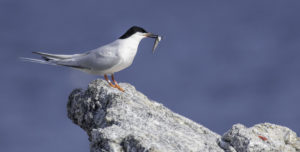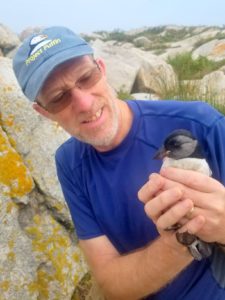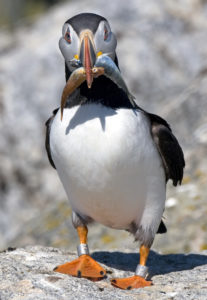Seabird sentinels in the Gulf of Maine: What they can tell us about the state of our oceans
Date/Time
09/15/2020 7:00 pm - 8:15 pm
By the middle of the 20th century, the populations of many species of seabirds in the Gulf of Maine had been decimated. Puffins had last nested on Eastern Egg Rock in 1885 and terns in 1936. In 1973, National Audubon started a program to reintroduce and establish the Maine breeding grounds for these species, led by seabird visionary Steve Kress. In 2019, forty-five years later, Steve retired and turned over the program to new leadership.
The program has proved exceptionally successful. The population of Atlantic Puffins has grown to more than 1,000 nesting pairs on five coastal Maine islands, and nesting colonies have been restored for over 40,000 other seabirds. Furthermore, the restoration techniques developed in Maine have now been used to bring back more than 50 species of seabirds around the world, many critically endangered. But the work is far from done, as these populations continue to face dramatic new challenges.

On Tuesday, September 15th, at 7 p.m., we’re delighted to welcome Dr. Donald Lyons, who now leads Audubon’s seabird programs in Maine. He’ll share the latest information on the health of our seabird populations, and the outlook going forward. We can now study puffins, terns, and other species to better understand the Gulf of Maine, the looming effects of climate change, and how to manage fisheries for ecosystem health and sustainable economies.


Dr. Lyons is a Director of Conservation Science for the National Audubon Society, and has spent his career in work directly aligned with Audubon’s Seabird Restoration Program, including the last 20 years at Oregon State University.
There’s no charge to participate, but you need to register in advance to watch this program. To do so, please click on this link and enter your name and email address:
https://us02web.zoom.us/webinar/register/WN_99GMz9RoS5WBHAVLhst5Fg
After registering, you will receive a confirmation email containing information about joining the meeting.
We hope you can join us!
